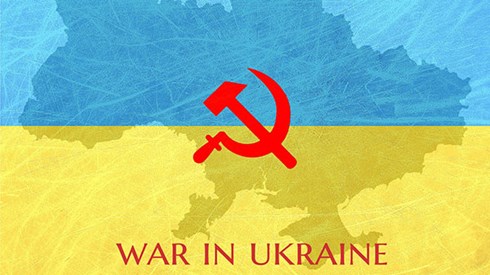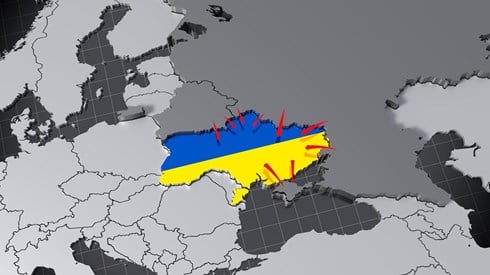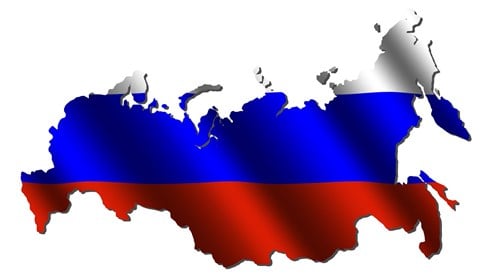Russia-Ukraine Conflict Raises Various Insurance Claims Complexities

May 23, 2022

Russia's invasion of Ukraine is likely to present a variety of complex issues around insurance claims across multiple lines of coverage, according to Aon.
In its May 2022 Risk Maps Newsletter, Aon divides the potential claims into four areas: claims arising directly from the conflict, claims arising indirectly from the conflict, claims pre-dating the conflict, and claims involving business interruption.
Claims arising directly from the conflict are likely to involve crisis management, political risk, aviation war, and marine war lines of coverage, Aon says. The broker says that its focus in such claims would be on the potential application of coverage and exclusions, the quantification of losses, claims reporting, and claims adjustment.
Examples of claims that might arise indirectly from the conflict could be trade credit, exchange transfer, cyber, directors and officers (D&O) and crime-related claims arising from managerial issues and decisions, and riot and civil commotion such as claims arising from anti-war protests around the world, the report suggests.
In discussing claims pre-dating the Russia-Ukraine conflict, Aon notes that theoretically across any line of coverage certain claims may be affected by sanctions and/or insurers' ability to facilitate payments for operational or other reasons. Such claims would likely emerge in Ukraine, Russia, or Belarus but not exclusively from those countries, Aon says.
"In the event that sanctions are the sole reason for claim payments not to be made, it is important for clients to effect standstill agreements or similar approaches to ensure that, at a later stage when sanctions may no longer apply, payments can be made," the report says.
Regarding business interruption claims, Aon notes that the Russia-Ukraine conflict is affecting the economy worldwide. The situation creates complexities as insurers assess business interruptions for any clients that generated revenue from activity in or sales to Ukraine, Russia, or Belarus before the conflict began, the broker says.
In addition, some firms are voluntarily leaving Russia, the report says. "In all instances, insurers are likely to seek to understand the impact of a decision to withdraw from Russia on global revenue (this is an underwriting notification issue primarily, but if not properly managed, could become a claims/risk issue)," Aon says.
The report says other complex issues could arise around business interruption claims resulting from the Russia-Ukraine conflict.
Each of the four categories of claims will involve nuances and complexities around coverage, claim quantification, and insurance program structure, the Aon report says. Issues around program structure are probably best represented by multinational insurance programs with master/local differences-in-conditions/differences-in-limits structures, Aon says.
"Here there is also the potential for cut-through clauses that may be in place to allow a master policy to pay a claim in the stead of the local (or fronting)—if the local is with an insurer in Ukraine or Russia that is unable to pay for reasons related to sanctions or operational challenge," the report says.
Additional complexities could emerge in insurance programs where Ukrainian or Russian capacity is part of a coverage layer or tower, Aon says.
"The complex picture means it is impossible to make useful generic statements about coverage, programs, or issues," Aon says. "As is always true, any claim will be assessed on its technical merits based on policy wording and proof of loss, and payments will be potentially subject to the sanctions environment."
The Aon report notes that the nature of the Russia-Ukraine conflict introduces complexities to the claims adjustment process. "The 'normal' approach to claims investigation and adjustment often involves visits to loss locations and access to materials. The current situation simply makes this impossible," the report says.
Aon says that insurers, claims adjusters, and other claims specialists are engaged in discussions focused on ensuring that claims can be managed appropriately, to the extent possible.
"It is important to note that insurers, adjusters, and others face their own changes related to the new environment in Ukraine and Russia, no longer having access to owned operations or network partners," the report says. "Each of these firms must also address the potential impact of sanctions on their processes."
The Aon report also addresses insurance company issues that might affect large multinational companies with Russian operations. It notes that there are often requirements that certain coverages such as auto be underwritten locally by Russian-domiciled insurers.
Questions emerged around coverage towers involving such coverages written by Russian-domiciled insurers when new Russian laws were passed in March. Those laws are aimed at restricting Russian insurers' dealings with insurers, reinsurers, and brokers based in or controlled by residents of "unfriendly states" including the European Union, the United Kingdom, the United States, Australia, Canada, and Japan, the report says.
"The laws are also aimed at restricting Russian insurers from transferring money to any such entities," the report says. "These changes have impacted negatively on the capacity and availability of coverage for western multinationals to procure mandatory coverages for their operations in Russia and cast uncertainty on Russian insurers' claims adjustment and paying ability for coverages already in force."
An additional concern is Russian insurers' inability to get access to western reinsurance companies or pay premiums and exercise contractual obligations under existing reinsurance treaties, Aon says.
"This creates a great deal of uncertainty regarding both the existence of sufficient reserves by local Russian insurers to allow the underwriting of new risks, as well their ability to collect on reinsurance obligations and therefore make payment on claims," the Aon report says.
May 23, 2022


